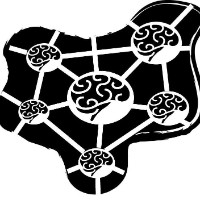Some decision-making processes, like those during presidential elections, are complex and require great cognitive engagement. Under the hypothesis that frequent exposure to candidate image (familiarity) or its confidence (associated to previous information, with emotional content) could drive decision-making, online social surveys were conducted during the 2019 Argentine Presidential Elections, as well as news (scraped from written media published from September 21 to October 27) were analyzed to assess each candidate mention frequency. Familiarity (F), Confidence (C), and Voting probability (VP) were estimated for each candidate from the surveys, as well as the main means used by the participants to inform themselves about the candidates. Through a least-squares analysis, C and F were observed to be the variables that mostly explain the VP variance. Significant differences were observed between candidates for three variables [Kruskal-Wallis test; C: H(5, n=2467)=244,1753;p=0,000; F: H(5, n=2467)=809,8072;p=0,000; VP: H(5, n=2467)=620,8873;p=0,000]. In a cross-analysis between variables and for different candidates, C was found to correlate better (than F) with VP (Spearman Correlation) but both were significant in most analyses. Besides, the average of F, C, and VP for each candidate correlates significantly with the frequency of mentions (for the written media analyzed), advertising costs, and election results.
P#54
Familiarity and Confidence Could Prime Complex Decision Making With Social Implications
Tomás Alves Salgueiro
- Ciudad Autónoma de Buenos Aires,
- Argentina
- Tomás Alves Salgueiro ¹
- , Franco Agustín Bernal ¹
- , Damián Furman ²
- , Juan Manuel Pérez ²
- , Pablo Nicolás Fernández Larrosa ¹
- 1 IFIByNE - CONICET // FCEN, UBA
- 2 ICC / DC // FCEN, UBA

